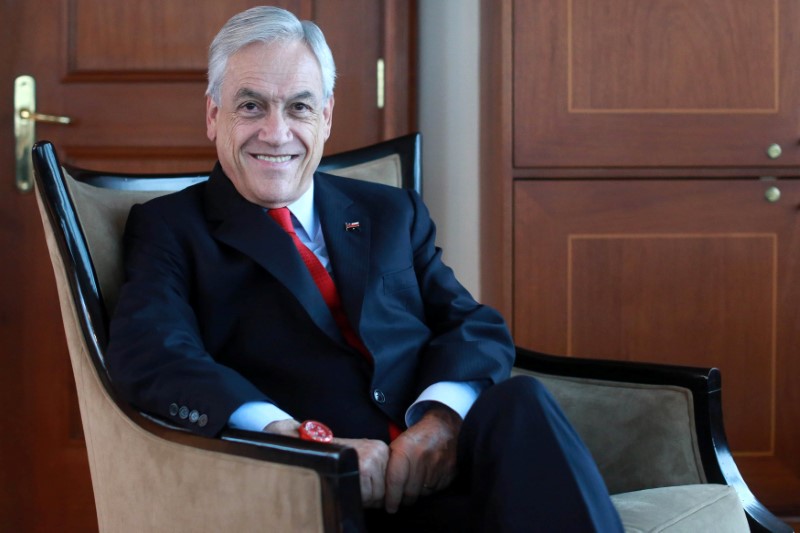SANTIAGO (Reuters) - Chile needs to recover business confidence and tackle its fiscal deficit in order to get investment going again, said Sebastian Pinera, the front-runner in this year's presidential election.
The top copper exporter had lost its capacity to grow and create jobs, said the conservative candidate in an interview on Friday in Santiago, as part of the Reuters Latin America Investment Summit.
"We need to recover a climate of greater confidence and unity, and generate more stability," said Pinera. "Investment in Chile has been falling for four years."
Pinera, who previously ran Chile between 2010 and 2014, has a clear lead in polls ahead of November's election. Leftists Alejandro Guillier and Beatriz Sanchez are polling at roughly similar levels for second place.
The 67-year-old is benefiting from disenchantment with the center-left government of President Michelle Bachelet, whose term has coincided with a downturn in the copper price and therefore tougher economic times.
Her program of tax-and-spend reforms has also received a lukewarm reception from Chileans, with leftists complaining that they are too timid and the right-wing opposition and business community complaining that they have crimped investment.
"We are going to perfect the three big reforms that this government did because in my opinion they are wrong," said Pinera.
"The tax reform was a brake on investment and growth, the labor reform was a brake on jobs and the education reform was an attack on freedom and quality in education."
If a further planned pension reform has not become law by the time he potentially took power in March 2018, he would "try to move it in the direction" of his preferred ideas, he said. While both Bachelet and Pinera agree changes are needed to Chile's pension system, they disagree about how extra remittances should be managed and allocated.
Other changes Pinera is eyeing include reducing the country's often stifling bureaucracy, cutting the time that resources projects take to receive environmental approval, and making all public transport vehicles electric.
In general, Pinera said he favored a smaller state approach to government and in particular flagged his concern about the fiscal deficit and debt rising too quickly.
"One of our concerns is recovering macroeconomic balance and that in my opinion is going to permit that the private sector will have more confidence to reactivate the motors of investment, exports," he said.
Earlier Friday, credit ratings agency Fitch followed S&P in downgrading Chile's debt a notch, after successive quarters of weak growth and low copper prices eroded the country's fiscal income.
However, Chile remains relatively wealthy for the region, and is still Latin America's highest-rated sovereign. In order to triumph in a likely second round runoff against the top placed leftist contender Pinera will need to balance placating the business community with demands from Chile's middle-class for the fruits of the country's affluence to be more fairly shared.
He would need at least 50 percent of the vote to avoid a runoff in December, which he acknowledged was unlikely to happen.

"I think that we will have a second round but I am convinced that if we do things well we will win that," he said.